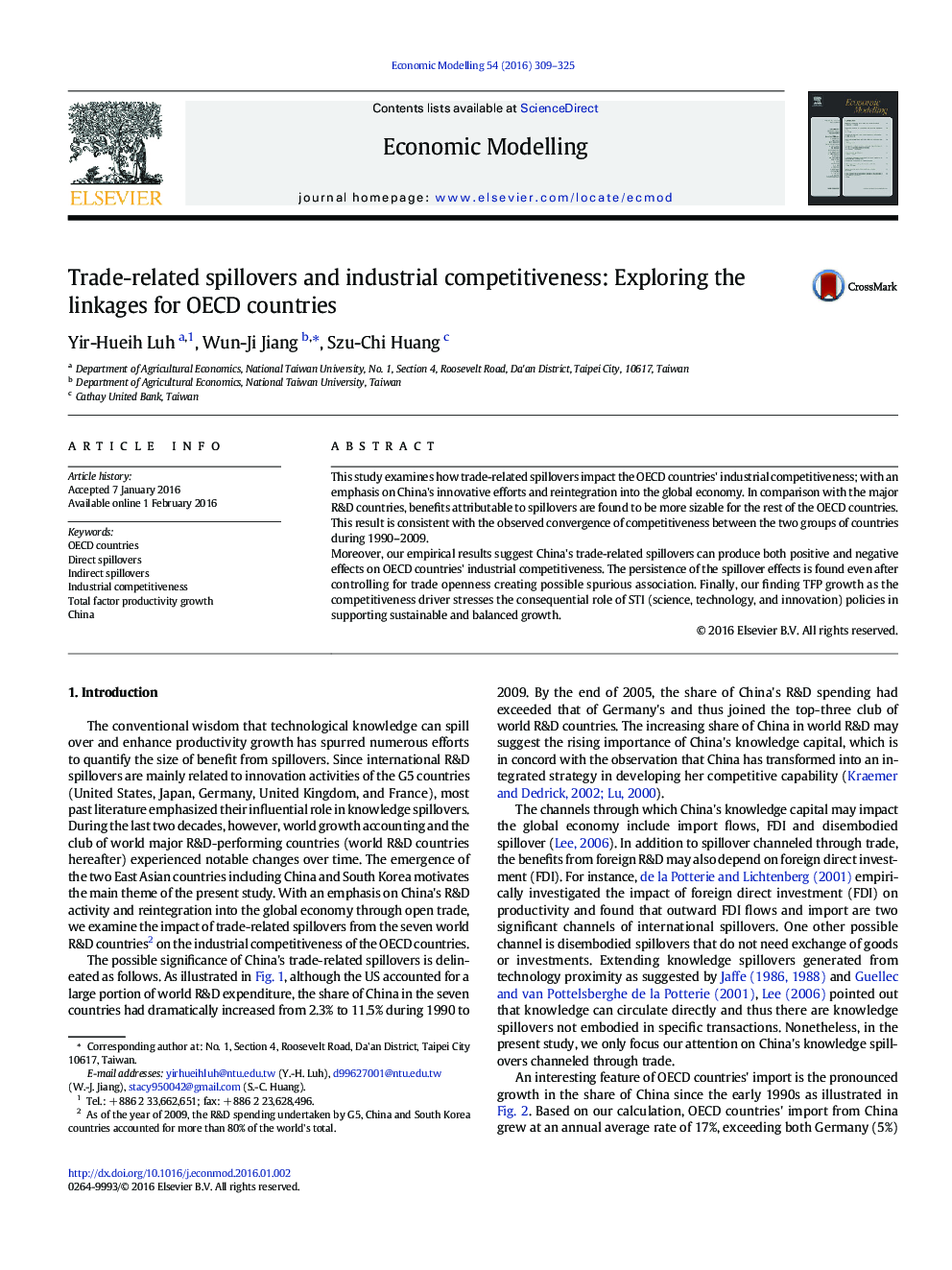| Article ID | Journal | Published Year | Pages | File Type |
|---|---|---|---|---|
| 5053393 | Economic Modelling | 2016 | 17 Pages |
â¢We examine the effect of trade-related spillovers on industrial competitiveness.â¢Benefit of spillovers is found to be more sizable for countries low in R&D intensity.â¢China's spillover effects are less sizable but can enhance industrial competitiveness.â¢Our findings stress the consequential role of STI policies for OECD countries.
This study examines how trade-related spillovers impact the OECD countries' industrial competitiveness; with an emphasis on China's innovative efforts and reintegration into the global economy. In comparison with the major R&D countries, benefits attributable to spillovers are found to be more sizable for the rest of the OECD countries.This result is consistent with the observed convergence of competitiveness between the two groups of countries during 1990-2009.Moreover, our empirical results suggest China's trade-related spillovers can produce both positive and negative effects on OECD countries' industrial competitiveness. The persistence of the spillover effects is found even after controlling for trade openness creating possible spurious association. Finally, our finding TFP growth as the competitiveness driver stresses the consequential role of STI (science, technology, and innovation) policies in supporting sustainable and balanced growth.
